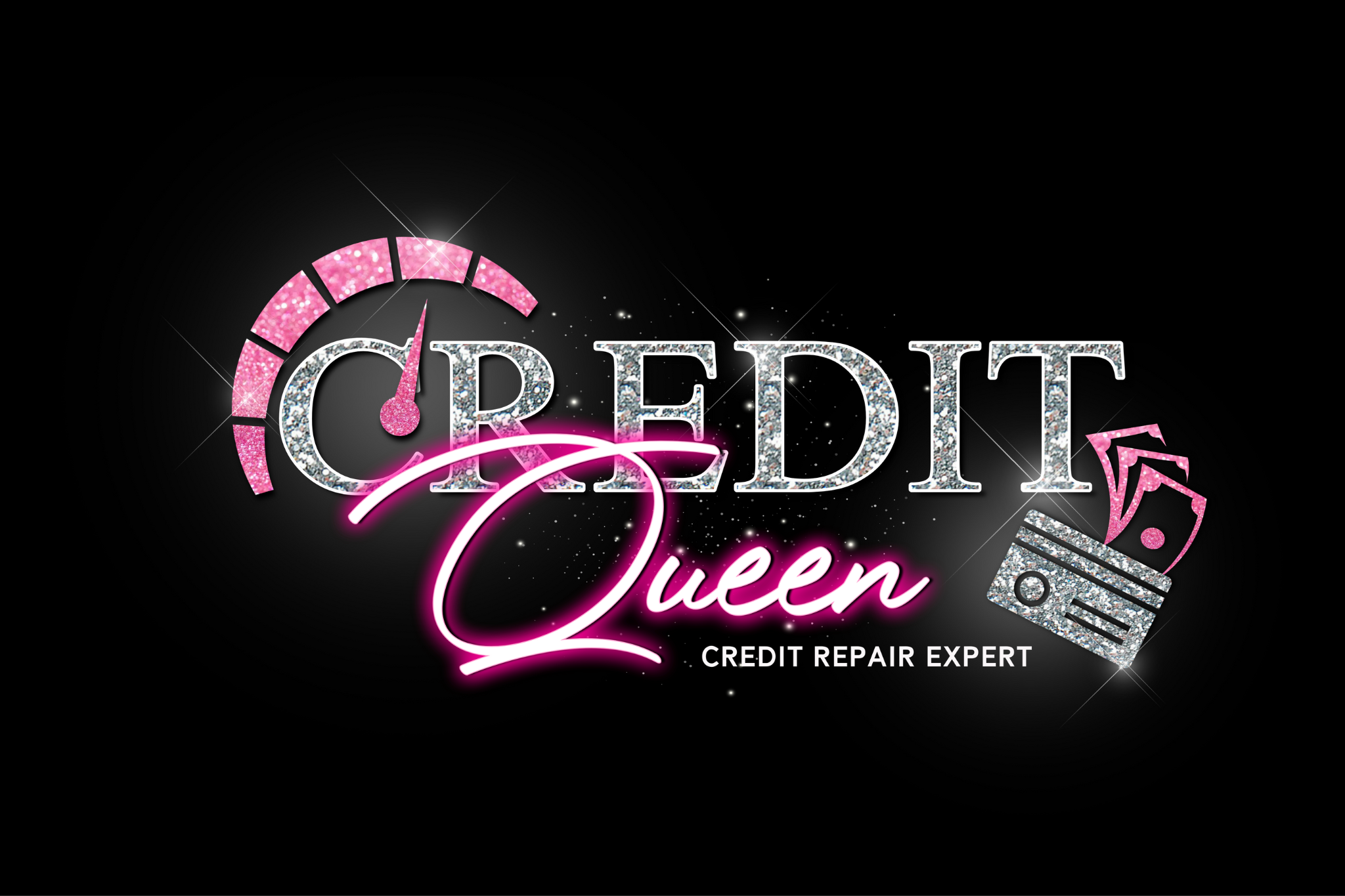The Facts About Wealth and Credit Scores
Imagine a world where you have all the luxuries you desire, from traveling to exotic destinations to dining in Michelin-starred restaurants. A world where your bank account boasts an abundance of zeroes, and financial worries are a distant memory.
You might think that having deep pockets and overflowing bank accounts would automatically guarantee an impeccable credit score.
After all, wealth and financial stability should go hand in hand, right?
Well, it turns out that the connection between affluence and good credit isn’t as straightforward as you might assume.
In recent times, economic crises have placed a premium on credit scores. A low credit score can limit your access to loans, insurance, and even employment.
However, many affluent individuals unknowingly sabotage their credit scores despite having substantial incomes. Contrary to popular belief, your income and savings are not determining factors when it comes to your credit score.
In this eye-opening article, we’ll delve into the surprising and often overlooked world of the wealthy and their credit scores, answering the intriguing question: Do rich people have bad credit?
We’ll draw insights from experts and explore the pitfalls that even wealthy individuals sometimes stumble into and offer practical strategies and solutions that can help anyone, regardless of income, improve their credit score.
Do the Rich Have Bad Credit? The Reality
The Wall Street Journal highlights a stark reality: The economic crisis has made credit scores more critical than ever, affecting not only access to loans but also insurance and even job opportunities.
However, many affluent individuals unknowingly sabotage their credit scores, often because they avoid debt, late payments, or insufficient credit history despite their high incomes. Income and savings are not factors in determining a credit score.
“Regardless of their finances, age, gender, or ethnicity, people don’t have an understanding of how credit works,” Jeremy E. Portnoff, a financial advisor, shared with Wall Street Journal.
He emphasizes the importance of being aware of your credit score, regardless of your financial status.To illustrate this, Portnoff recalls a client with over $1 million in assets who had a poor credit score. This client avoided borrowing, rented his home, and rarely used credit cards.
His aversion to credit had been instilled since childhood, and it could have posed difficulties for him when seeking a mortgage. A problem he’d encounter when planning for retirement.
This client’s story reveals a critical misunderstanding: that credit equals debt, and debt is bad.
In today’s financial landscape, credit scores have become critical for people across all economic classes. The bar for acceptable credit scores has been raised, and everyone now needs higher scores to qualify for loans and secure favorable borrowing terms.
Scott A. Beaudin, another financial advisor, suggests that a minimum credit score of at least 760 is needed to qualify for the best rates. However, many individuals lack an understanding of how to build and maintain a good credit score, which can impact their financial goals significantly.
Why Income Doesn’t Influence Credit Scores
Credit scores are calculated based on various factors, but income is not one of them.
Fair Isaac Corp’s FICO score, used by over 90% of major lenders, has historically ranged from 300 to 850 points.
Payment history, the amount owed, the length of credit history, and the types of credit all play a role. Payment history accounts for 35% of the score, making it crucial to pay bills on time.
Surprisingly, paying off credit card debt is another crucial factor. If you don’t pay off your card debt every month, paying it down to less than half the maximum available balance can significantly help your credit score.
While it may be tempting to consolidate debt on another card, you should only do so if the interest rate is substantially lower and you plan to pay it off within a year.
Another credit score booster is maintaining credit cards, even if you only use them once a year and pay them off immediately.
Canceling a credit card after paying it off can negatively affect your score, as the scoring model considers the longevity and available credit.
Additionally, multiple credit inquiries can hurt your score, especially if lenders request your credit report when you’re shopping for a mortgage or auto loan. To avoid this, get “good faith” estimates from banks without providing your Social Security number.
The Pitfalls Even the Wealthy Face
So, why do some wealthy people have bad credit scores despite their substantial incomes?
Let’s examine some common mistakes they make:
1. Underusing Credit: A wealthy individual may choose to pay for everything upfront, such as buying a car with cash. While this strategy avoids debt, it doesn’t contribute to building credit. To establish a robust credit history, occasional credit use is necessary.
For instance, opening a credit card, setting up automatic bill payments, and then scheduling automatic credit card payments from your bank account can help.
Taking a car loan and paying it off quickly can positively impact your credit history. Credit bureaus need to see a track record of responsible credit use to assess your creditworthiness.
Solution: Open a credit card, set up automatic payments, and pay off the card each month. This way, you can maintain a cash lifestyle while still building credit.
2. Letting Errors Slide: Credit reports can contain errors, such as misspellings or incorrect personal information, resulting in a mix-up between your credit history and someone else’s. These inaccuracies can harm your credit score. Unusual names or transposed Social Security numbers are common culprits.
Checking your credit reports for errors and addressing them promptly is essential. A single error can make a significant difference in your creditworthiness.
Solution: Regularly review your credit reports from the major credit bureaus to identify and rectify errors. This proactive approach ensures that your credit report accurately reflects your financial behavior.
3. Maxing Out Credit Cards: High earners sometimes succumb to the temptation of overspending. Maxing out credit cards and carrying high credit card balances can negatively impact your credit score, even if you can afford to pay off the debt.
Lenders scrutinize your credit utilization ratio, which reflects how much debt you carry relative to your available credit. So, keeping this percentage low is vital to maintain a healthy credit score.
Solution: Aim to keep your credit utilization below 30%, as higher ratios indicate a heavy reliance on credit and may lower your score. Maintain a cushion of available credit for unexpected expenses.
4. Forgetting to Pay Bills: Even with a high income, it’s easy to forget to pay bills on time. Late payments can significantly damage your credit score even with a high income.
Missing one payment could result in a 100-point drop for those with previously excellent scores. To prevent this, automate bill payments and maintain an organized bill-paying system.
A strong history of on-time bill payments is crucial for maintaining a good credit score.
Solution: Set up auto-pay for your bills to ensure timely payments. Organize your finances to avoid overlooking any payments, as even one missed payment can have a negative impact.
By taking these steps, you can see a noticeable improvement in your credit score in a matter of months.
5 Reasons Millionaires Need Good Credit
In a world where wealth often appears synonymous with financial invincibility, one might assume that millionaires have no reason to be concerned about their credit scores.
After all, their bank accounts seem bottomless, and they can seemingly afford anything they desire.
But here’s the truth: Even millionaires can’t afford to overlook their credit scores.
In fact, maintaining a strong credit profile is essential for even the most affluent individuals, and there are compelling reasons why millionaires should prioritize their credit scores:
- Credit Cards Matter for Everyone: Millionaires frequently rely on credit cards for convenience, travel perks, and financial flexibility. While their substantial bank balances might suggest that they don’t need to worry about credit, the reality is different. Credit card interest rates are partially determined by credit scores. Even millionaires can end up paying more in interest if they have delinquencies or a low credit score. A high income alone won’t prevent these elevated interest charges.
- Loans are Essential: Many millionaires are successful business owners who understand that, sometimes, it takes money to make money. Businesses may need loans to weather temporary revenue declines or fund new ventures. Just like anyone else, the interest rates on these loans depend on personal credit scores. Whether it’s financing an existing business or embarking on a new entrepreneurial journey, a poor credit score can translate to higher interest rates, potentially costing millions. Even for personal loans, like mortgages or car loans, a poor credit score could translate into significantly higher interest payments.
- Employment Opportunities: Contrary to popular belief, millionaires often earn their wealth through hard work and dedication. If a millionaire decides to switch jobs, their credit report could come under scrutiny by potential employers. This is especially true in certain industries, such as finance, where credit background checks are routine. Even with a substantial bank balance, a tarnished credit history could jeopardize job prospects.
- Impact on Insurance Rates: Insurance premiums are another area where credit scores exert influence. Wealthy individuals often possess a multitude of assets, making insurance a significant consideration. Just as with interest rates, insurance premiums are influenced by credit scores. Regardless of one’s income, a poor credit history can lead to higher insurance rates. Millionaires, who often have more to insure, may find themselves paying significantly more in insurance premiums if their credit isn’t in good shape.
- Credit Doesn’t Reflect Wealth: While millionaires have the luxury of substantial incomes, credit scores are determined by different factors. One of the most crucial points to remember is that wealth and income are not reflected in your credit score. Your credit report doesn’t include your salary, job title, or employer. Instead, it emphasizes payment history, debt-to-credit utilization, and other factors that contribute to your credit score. Even the wealthiest individuals need a healthy credit history to access favorable financing options and enjoy the perks that come with it.
Millionaires, despite their financial prowess, should recognize that a strong credit profile can open doors, secure lower interest rates, and pave the way for a financially secure future.
After all, credit knows no wealth boundaries, and the benefits of a healthy credit score extend to millionaires and everyday individuals alike. So, whether you’re a millionaire or on the path to financial success, your credit score is a valuable asset that should not be overlooked.
How to Improve Your Credit Score
If you find yourself in a situation where you have a high income but a poor credit score, there are steps you can take to boost your creditworthiness.
Improving your credit score is achievable, regardless of your income level.
Here’s a step-by-step guide to help you enhance your creditworthiness:
- Assess Your Current Credit Status: Start by requesting a copy of your credit report from the major credit reporting agencies. You are entitled to a free annual report from each of them.
- Identify and Correct Errors: Thoroughly review your credit reports for errors, omissions, and signs of identity theft. Correcting these inaccuracies is essential to maintain an accurate credit history.
- Pay Bills on Time: Timely bill payments are the most critical factor in your credit score. Ensure that all your financial obligations are met promptly to boost your score.
- Manage Credit Card Balances: Keep your credit card balances below 30% of your credit limits. Reducing your debt-to-credit ratio can have a positive impact on your credit score.
- Maintain Credit History: Avoid closing old credit accounts, as the length of your credit history matters. The longer your accounts remain open, the better for your credit score.
- Diversify Your Credit: Having a variety of credit accounts, such as credit cards, loans, and mortgages, can enhance your credit score.
- Minimize New Inquiries: Limit the number of credit inquiries, especially when applying for significant loans like mortgages. Each inquiry can temporarily lower your credit score.
The Bottom Line
In conclusion, the world of wealth doesn’t grant immunity from credit score challenges. Your income level alone doesn’t determine your credit score; it’s your financial behaviors that count.
The key is to understand the factors that affect your credit score, recognize the mistakes to avoid, and take proactive steps to build and maintain good credit. It can lead to financial security and opportunities, regardless of your income. By following these strategies, you can ensure your financial dreams aren’t hindered by a bad credit score.
So, whether you’re striving for financial independence or comfortably enjoying the fruits of your wealth, managing your credit wisely is a vital step toward achieving your financial goals.
Your Assignment: Take Charge of Your Credit
Now that you’ve uncovered the truth about wealth and credit scores, it’s time to take action. Regardless of your financial standing, your credit score is a vital asset that can open doors to better economic opportunities.
It’s your assignment to seize control of your credit and secure your financial future.
- Check Your Credit: Start by requesting your free annual credit reports from the major credit bureaus. Understanding where you stand is the first step in managing your credit effectively.
- Correct Errors: Identify any inaccuracies in your credit report and take action to correct them. An accurate credit history is essential for fair assessment.
- Pay Bills Timely: Commit to a habit of on-time bill payments. Automate your payments to avoid missing due dates and damaging your credit score.
- Manage Credit Balances: Keep your credit card balances below 30% of your credit limits. This simple adjustment can significantly boost your credit score.
- Diversify Your Credit: Consider diversifying your credit portfolio. If you rely solely on credit cards, explore the option of loans or mortgages to enhance your credit history.
- Protect Your Financial Future: Understand that your financial behaviors, not just your income, determine your credit score. Make the commitment to manage your credit wisely and secure a brighter financial future.
Your assignment is clear: Take control of your credit, regardless of your income level. Your credit score is a powerful tool that can lead you to financial success. Embrace this opportunity and unlock the doors to a brighter financial future.
Ready to Reignite Your Financial Success? Contact the Credit Queen!
If you’re a high-earner facing the challenges of bad credit, it’s time to take control of your financial destiny. The road to financial success knows no wealth boundaries, and your credit score is a crucial element on this journey. The Credit Queen is here to help you transform your credit profile and reignite your financial success.
Don’t let a tarnished credit history limit your opportunities, lead to higher interest rates, or stand in the way of your goals. The Credit Queen specializes in empowering individuals, regardless of their income, to rebuild their credit scores and regain access to favorable financing options.
Contact the Credit Queen today and embark on a personalized credit restoration journey tailored to your unique financial situation. With expert guidance, proven strategies, and a commitment to your financial well-being, the Credit Queen will help you regain control over your financial future.
Don’t wait any longer. Reach out to the Credit Queen now and reclaim your path to financial prosperity. Your elevated credit score is the key to unlocking a world of financial opportunities, and the Credit Queen is your trusted partner in making it happen. Contact me today and reign over your financial empire!
About the Author
Meet Ashley Effinger, the Credit Queen and FreedomPath Advisor! Digital marketing royalty, I’m all about conversions and changing lives! By day, I improve credit scores, learn budgeting tricks, and build lasting wealth with my guidance. By night, I’m a rockstar wife and a supermom of 5 amazing kiddos! When not slaying credit myths, I indulge in my passions: reading, jet-setting, and sipping smoothies! Follow me for credit tips and a dose of laughter!
Drop me a line (say hi, ask a credit repair question, fan out, etc.): badcreditisexpensive@gmail.com
Ready to get started fixing YOUR credit? ashley@mycreditqueen.com
Let’s Connect on  Social
Social
LinkedIn: Ashley Effinger
Pinterest: @badcreditisexpensive
Instagram: @badcreditisexpensive
Youtube: @BadCreditIsExpensive
Twitter: @creditqveen
Facebook: @badcreditisexpensive
TikTok: @badcreditisexpensive
Medium: Ashley Effinger | Subscribe


















